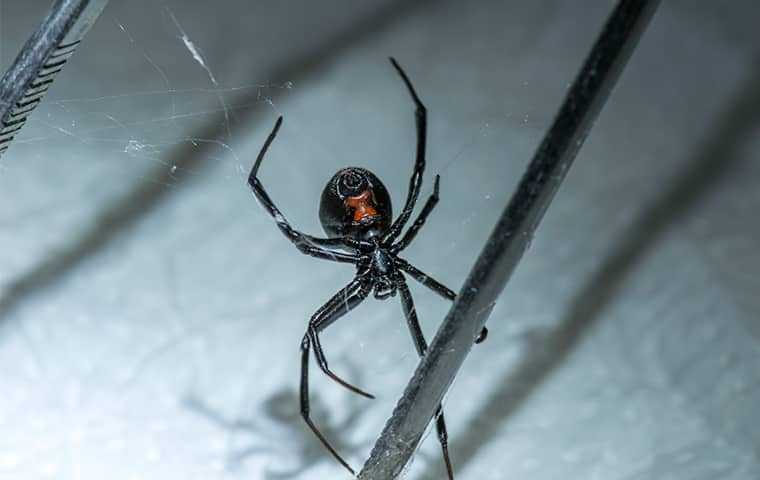


A member of our team will be in touch shortly to confirm your contact details or address questions you may have.

Why Choose Explorer Pest Management Inc?
-
Family Owned & Operated
-
Bonded & Insured
-
Customer Care Focused
-
Licensed & Certified Techs

Symptoms of a black widow spider bite include pain, swelling, redness, cramping, nausea, dizziness, sweating, and vomiting. Children, the elderly, and those with preexisting conditions are the most at risk from black widow bites, but they can negatively affect all individuals and should be met with immediate medical attention.
Why do I have a spider problem?
Spiders are attracted to properties that have plenty of food, water, and easy nesting spots for them to access. Pest prey infestations, cluttered indoor and outdoor areas, excess moisture, and humid conditions on your property all encourage spiders to move in.
Where will I find spiders?
Spiders are commonly found outdoors, hiding in wood piles, behind plant pots, under the eaves of decks and patios, or near other dark, quiet, and secluded spaces. If they move inside, you may find spiders in storage spaces, basements, garages, attics, and cabinets or closets. Generally, they seek out areas that have ready access to food sources and are unlikely to be disturbed by people.


Hear From Our Happy Customers
At Explorer Pest Management Inc, your satisfaction is our priority! See for yourself what our customers have to say about working with us.
-
"Professional and informative!"
He treated the area and within the day we started seeing a reduction of bugs.
- CS -
"Thank you Explorer Pest Co!"
Very helpful with servicing our pest problems & promptly explaining.
- Delilah B. -
"Explorer Pest Management is a great company."
If you want a good job with a pleasant demeanor Jason is the Tech to request.
- Debra B. -
"Great service."
I would recommend them if you're looking for a service local to the area.
- Michael S.
.2510080813293.jpg)
.2507160551001.jpg)
.2504141052278.jpg)